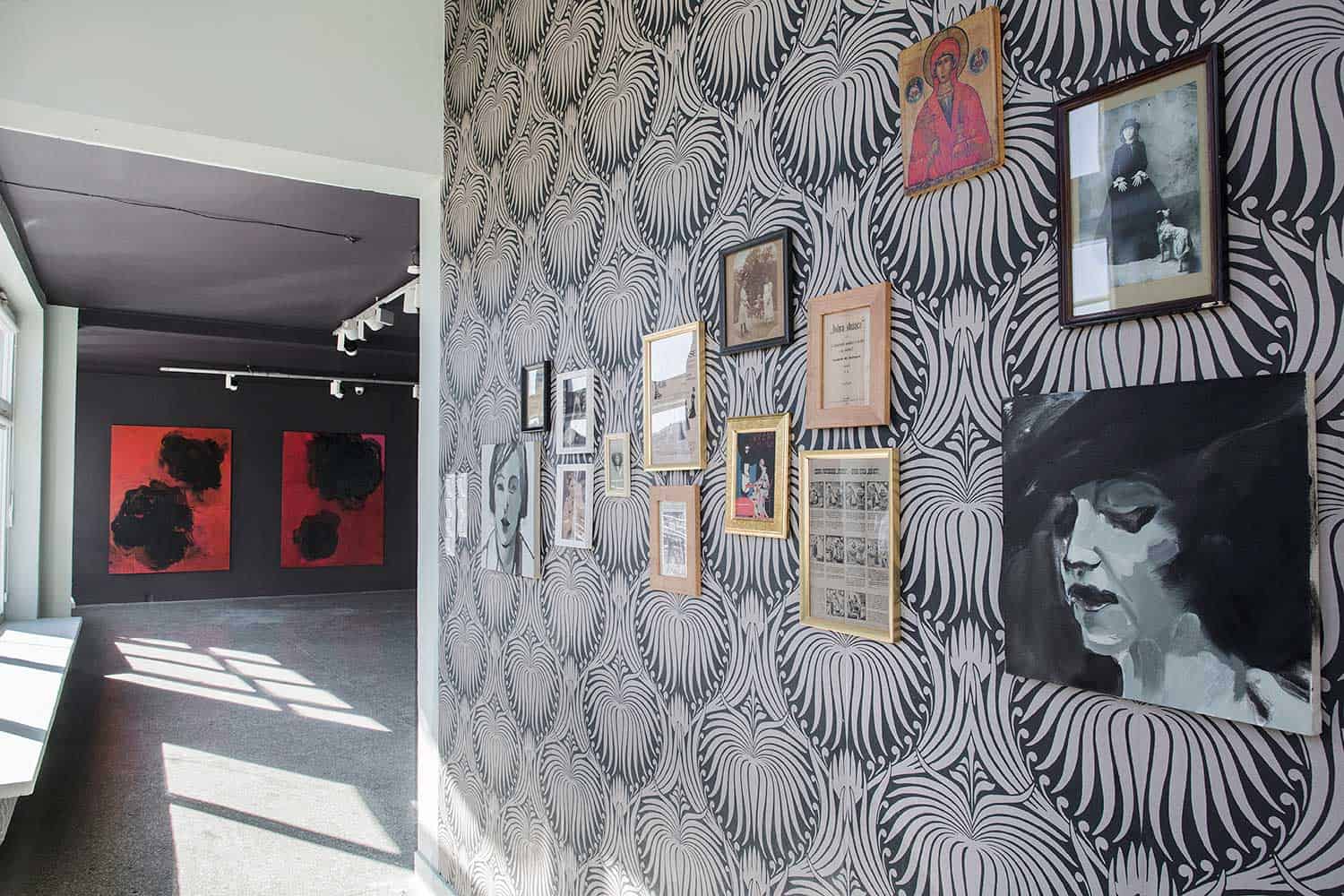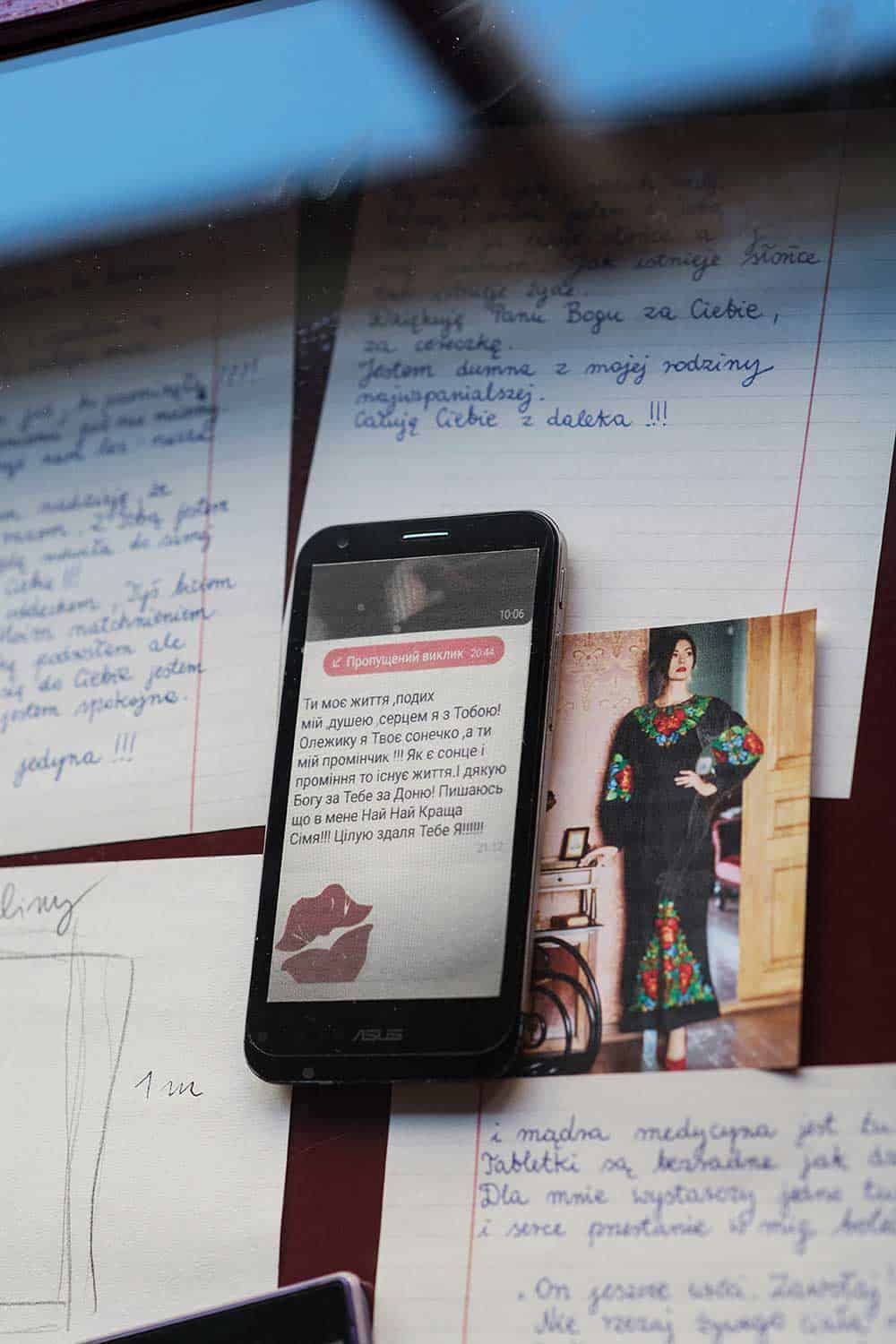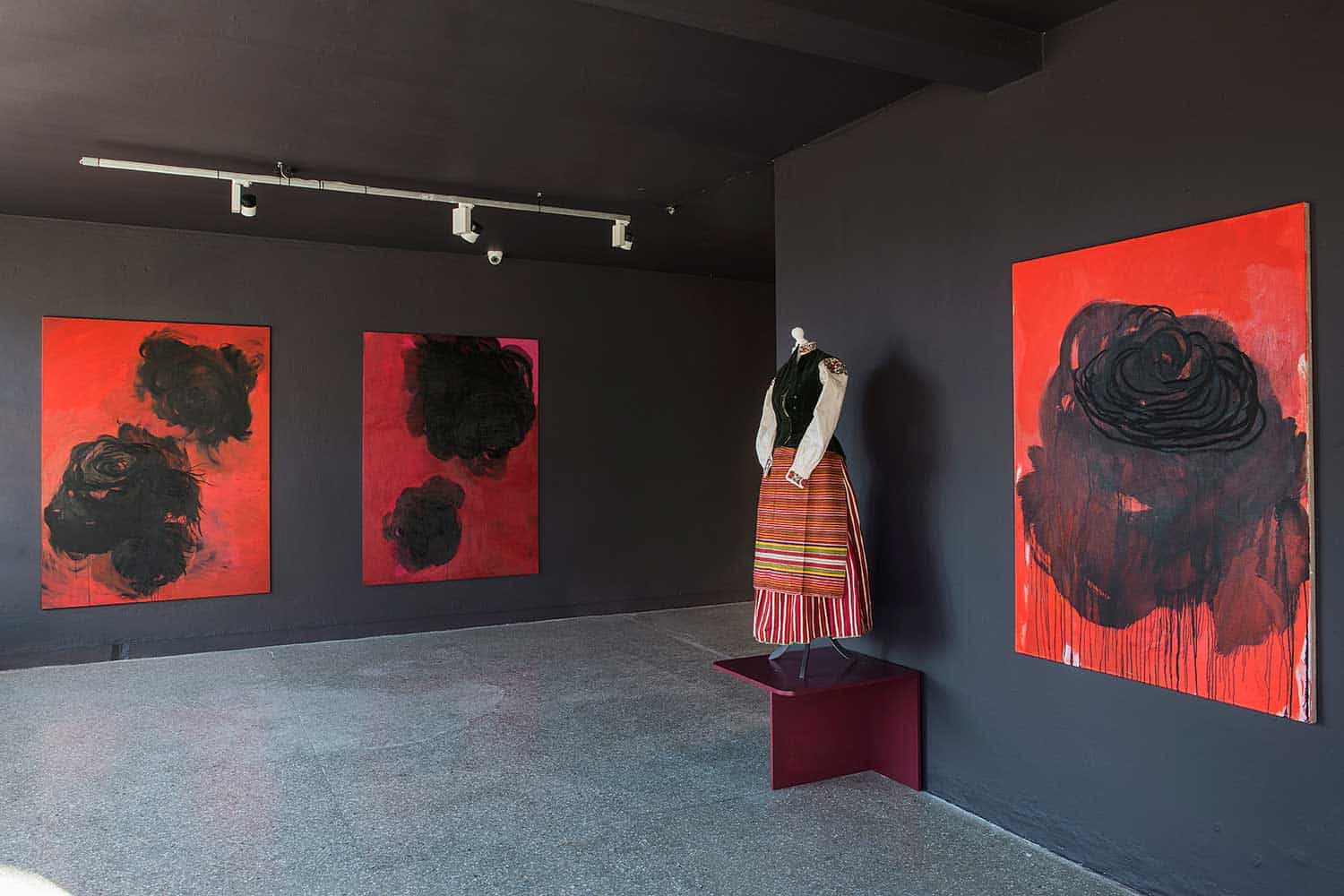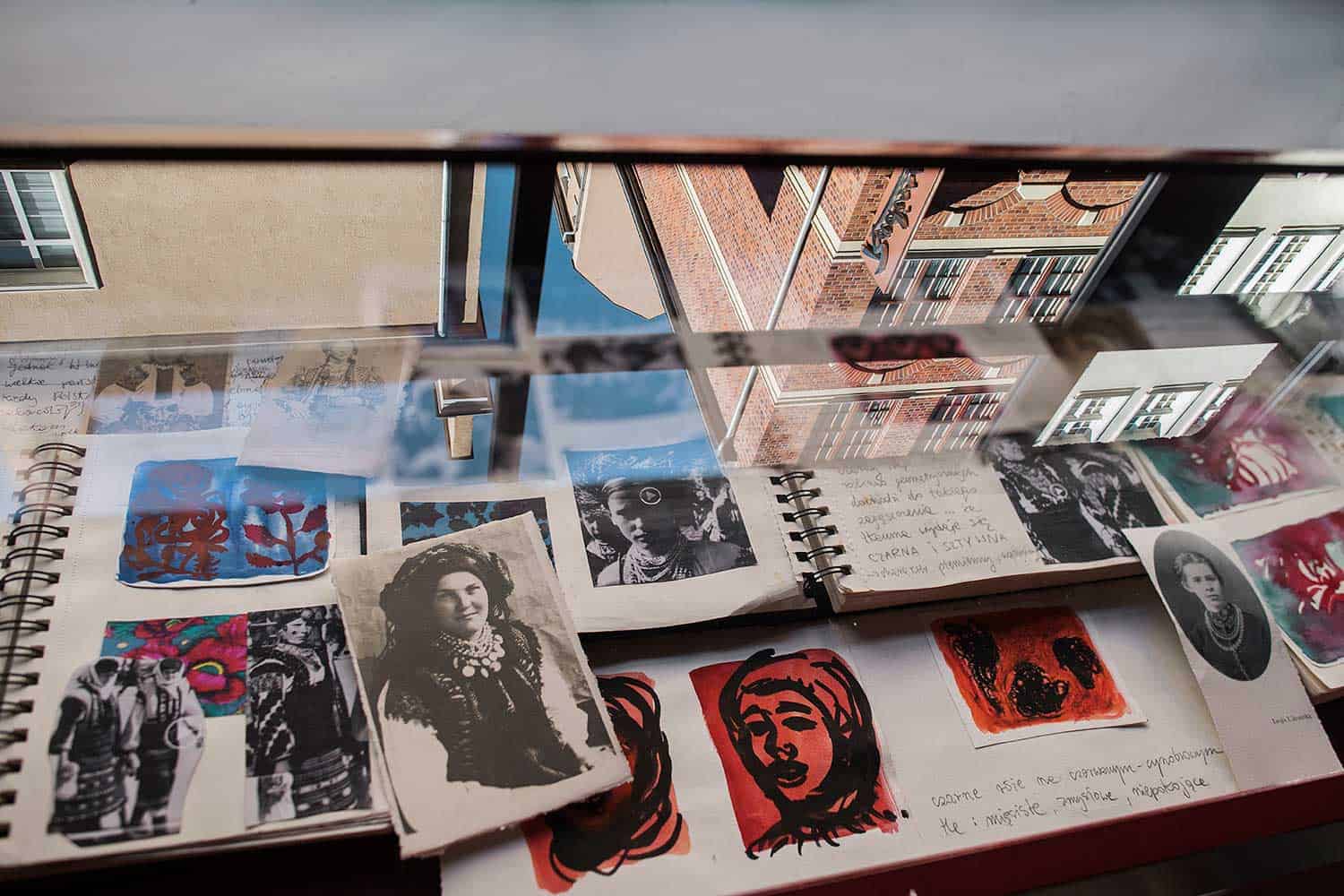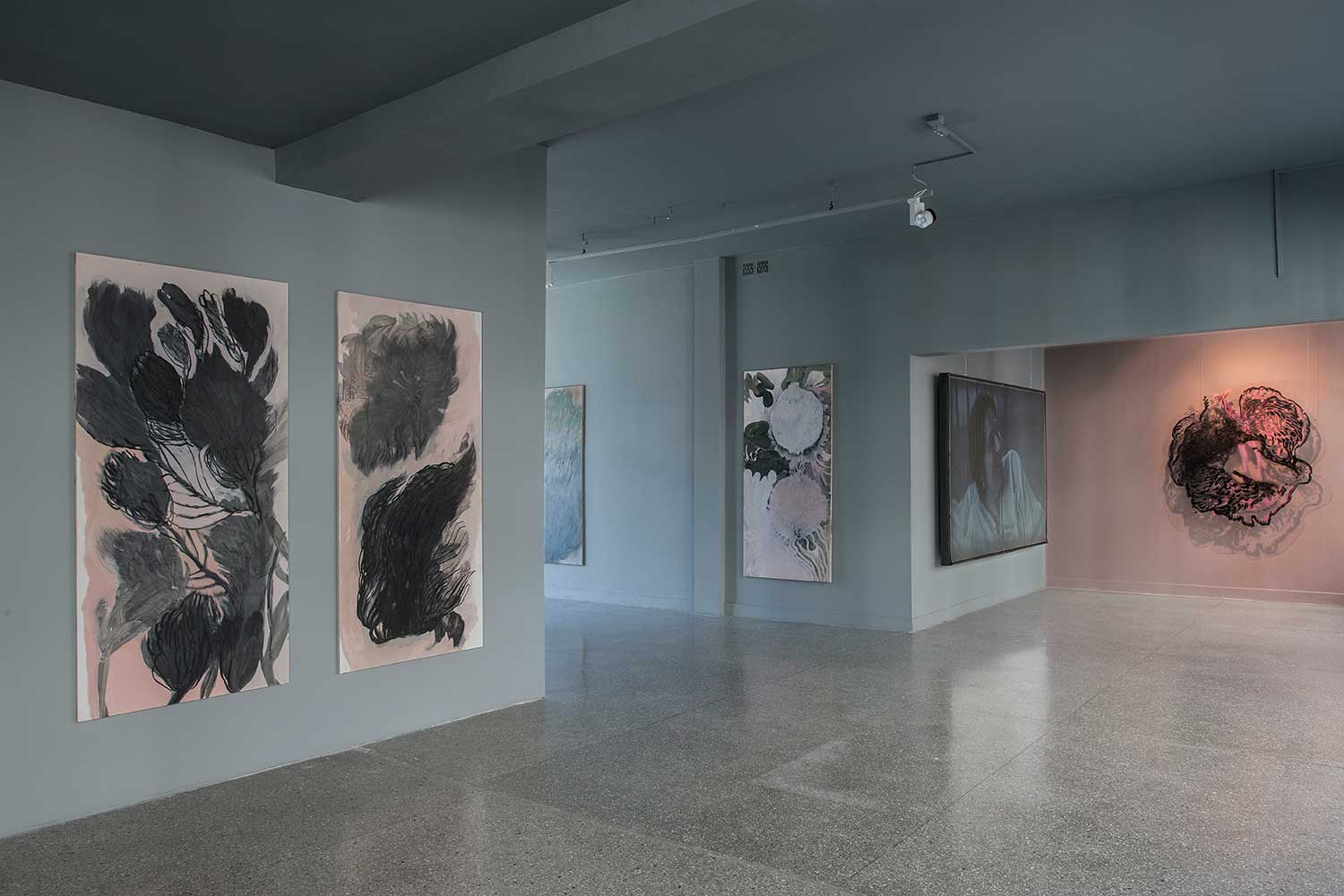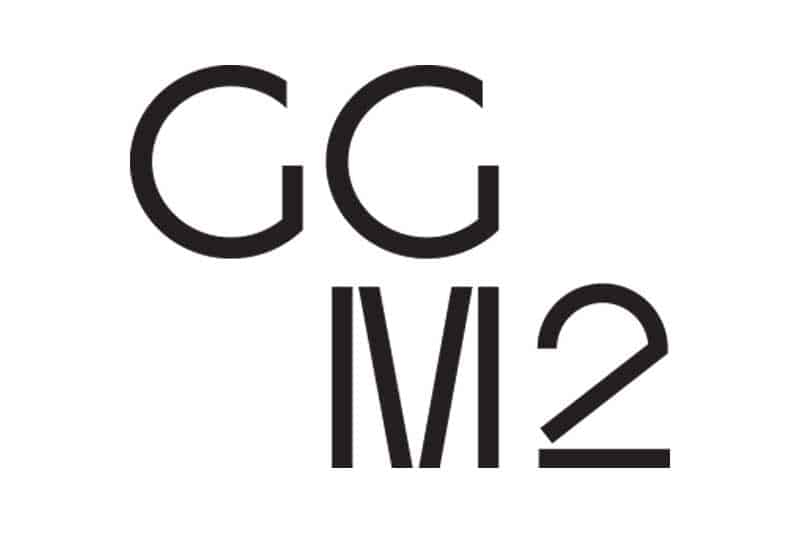The issue, or as we might even put it, the “problem” of immigrants is one of the most frequent topics of discussion these days. From daily TV news, through to press coverage, social debates and neighbourly discussions in the streets – we find this never-ending discourse dividing our society everywhere.
For Katarzyna Swinarska, a visual artist based in Gdańsk, the story of a young Ukrainian woman who is currently looking after her 105-year-old grandmother was the inspiration for her exhibition “Innocent Colonies”, currently on show at the Gdańsk City Gallery. Just as many other women, who find themselves in a difficult financial situation, Olga Kachurovska left her country in search for stability that she could provide to her family. For over a year now, she has lived with Swiniarska’s grandmother, taking care of her every day. As a result, this older lady is totally dependent on her assistance, which is necessary for her everyday functioning. The story is all the more interesting considering that there is a connection with the old lady’s past. She was born over 100 years ago on the territory of today’s Ukraine, and was brought up and fed in the first years of her life by a Ukrainian wet nurse. Today, just like at the beginning of her life, she requires support to survive.
The tragedy and paradox of the story which Swinarska takes up lies in the fact that Kachurovska has devoted all her time to work, providing care to an older woman and sacrificing close relations with her own family that she left behind in Ukraine. “Innocent Colonies” tells the story in which an exceptional bond is created unwillingly between Ms Kachurovska and her employer. Their symbiotic everyday functioning builds a story full of warmth, emotion and loving kindness.
In her artistic work, Swinarska has been inspired for years by the figure of the woman, her role and status in private and social life. In “Innocent Colonies”, next to large-size oil paintings, the artist presents several video works. The threads of the story of the artist’s grandmother and her wet nurse are a staging recorded on video.
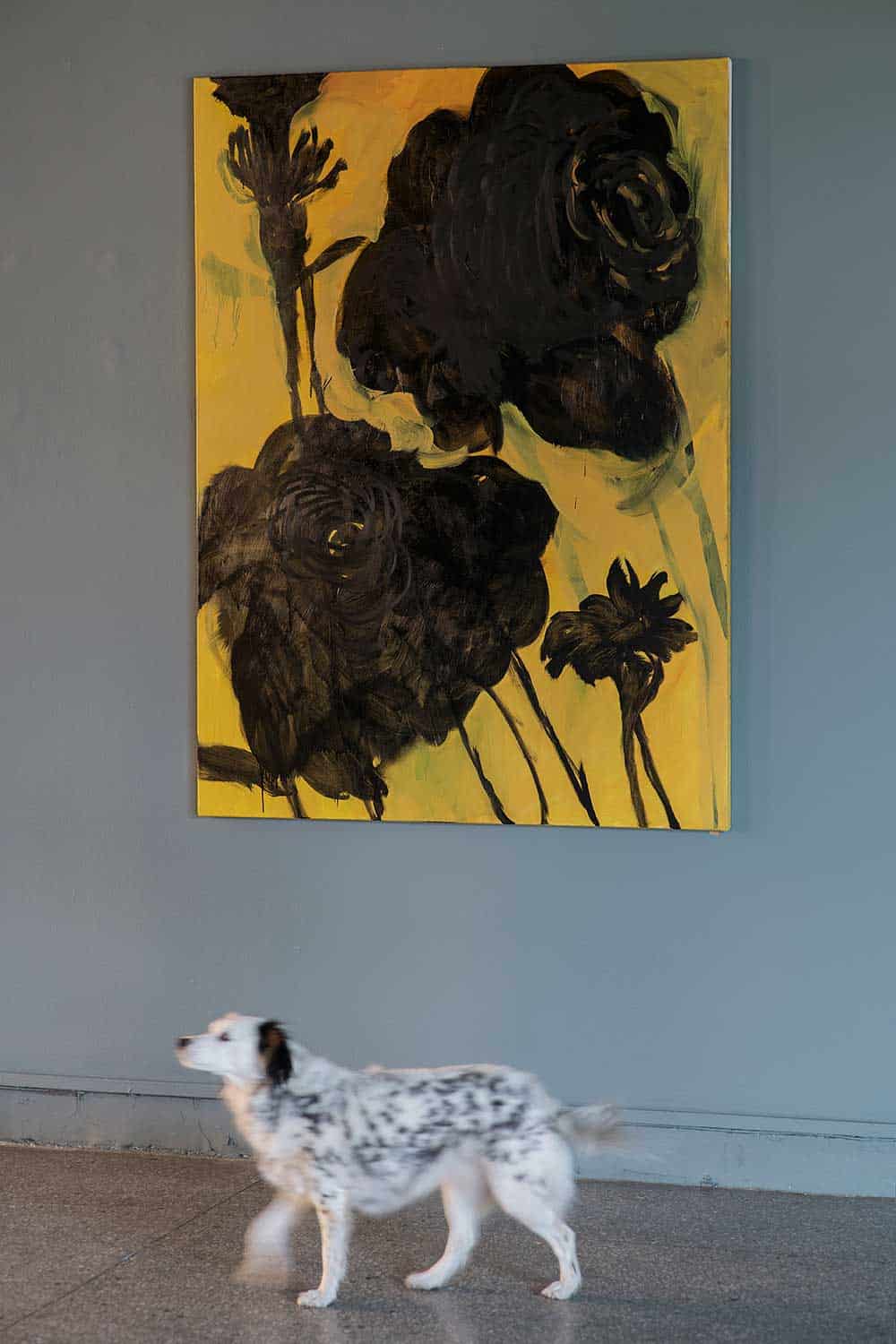
The exhibition also features a record of a short interview, an audiovisual installation and accompanying exhibits of Ukrainian folk clothing, photos and original letters that help us understand the story better.
In the video “Innocent Colonies”, seen at the start of the exhibition, Swinarska depicts a scene in which her great-grandmother comes to the wet nurse who is looking after her child. The lady of the house is standing by her servant’s bed, surrounded by cold space. As they talk, the century-old story merges with contemporary events from the main protagonist, Olga Kachurovska’s life. Her arrival in Poland involved separating from her family, her home and her own child. The human thread of love and longing is once again brought to the foreground.
Swinarska elaborates further on the subject of emotions, by creating a series of paintings inspired by Ukrainian folklore. This time the artist focuses on a woman’s affection towards a man, as blood-red distinctive floral patterns tell the story of longing for a man who is not with us, which also forms a part of Kachurovska’s story. The paintings are accompanied by a display cabinet with characteristic black folk patterns of Ukrainian origin, embroidered onto linen shirts. You can also read the letters that Kachurovska sends to her husband. Her words expressing longing, which are full of affection yet a bit infantile, can be regarded as an authentic expression of love.
“Compassion” is an excerpt from a conversation between Kachurovska and Swinarska. There are scenes showing a close-up of Kachurovska’s face. The artist asks her where she had learned to take care of elderly people so well, at the same time mentioning that she has noticed the warmth that her grandmother receives and that it has a great influence on her. Kachurovska tells about how she would visit her own grandmother as a child. She also says that the artist’s grandmother wishes her happiness with her family in her own house in Ukraine every day before she goes to sleep. Kachurovska gets very emotional several times during the recording.
“Innocent Colonies” features an interview with Klaudia Iwicka, the coordinator of the Immigrant Support Centre, who expresses her views on the situation of immigrants in Poland. She points to the fact that Ukrainian women hardly ever complain despite the difficult jobs they have taken up. She also asserts that the majority of people who do these types of jobs do not enter into any agreements with their employers, which can lead to serious negative consequences if any problems occur.
The exhibition concludes with an audio-visual installation located in a corridor between two parts of the gallery called “The School For Wives. A newly-weds’ guide”. A collage of early 20th century photographs hangs on the walls of the passage: portraits, drawings, and covers of guidebooks. You can listen to excerpts from the guidebooks read by Swinarska. We learn how to find a good wet nurse, what qualities she should have and what chores she should take up at home. A wet nurse is a profession which is almost forgotten today, yet it was very common in the past. According to one of the excerpts the demand for wet nurses was growing, which might have been a sign of social injustice. Typically, a woman who was employed as a wet nurse had given birth to her own child first in order to feed her employer’s child, to have breast milk. She often had to put her own child on artificial food which often ended in its premature death.
In addition to the immigrants, who have been making headlines recently coming to Europe through the Mediterranean Sea, there are those who gradually started coming to Poland much earlier than that, and who are today one of the nine minorities acknowledged under statutory provisions. They are, of course, Ukrainian nationals. According to the 2011 National Census, as many as 51000 people living in Poland declared that they were from Ukraine. Over recent years, we have been witnessing a substantial inflow of people from the east to Poland, most often caused by a difficult financial situation in their native countries. For that reason, their trip to Poland usually involves full-time employment, and it has become apparent that in Poland some jobs are currently performed only by Ukrainians. Caregiving to the elderly is one of such professions. We should bear in mind, however, that Ms. Kachurovska’s situation is not a typical one among women or girls coming to Poland. There are a lot of young women who wish to stay in our country for good. Living in Gdańsk in recent years, I have met a lot of people in this situation. Right after graduating from secondary schools, they come here, go to university, take up employment and start their grown-up lives in Poland. In one of the recordings, Swinarska brings up an interesting subject, mentioning that her grandmother used to have an unfavourable opinion of Ukrainians. It has changed in the final years of her life.
Poles’ views on the people coming to our country are divided. From totally neutral approaches, numerous activities and organisations aimed at improving immigrants’ situations in Poland, to fear which is invoked in some people by the word “immigrant.” It often results from insufficient knowledge or lack of direct contact with migrants, and thus creates an inability to make a truly informed opinion. Those silent heroes have been lumped together countless times and it was almost impossible to place emphasis on individual stories. Yet each story is a totally different journey marked with a unique accompanying experience, just like in the case of the artists’ story. By highlighting personal threads, Swinarska’s exhibition is filled with emotions, thoughts, dreams, worries and sadness which connect the viewers – because of their human nature.
Written by Daga Ochendowska
Translated by Monika Mokrosz
Proofread by Maggie Kuzan








